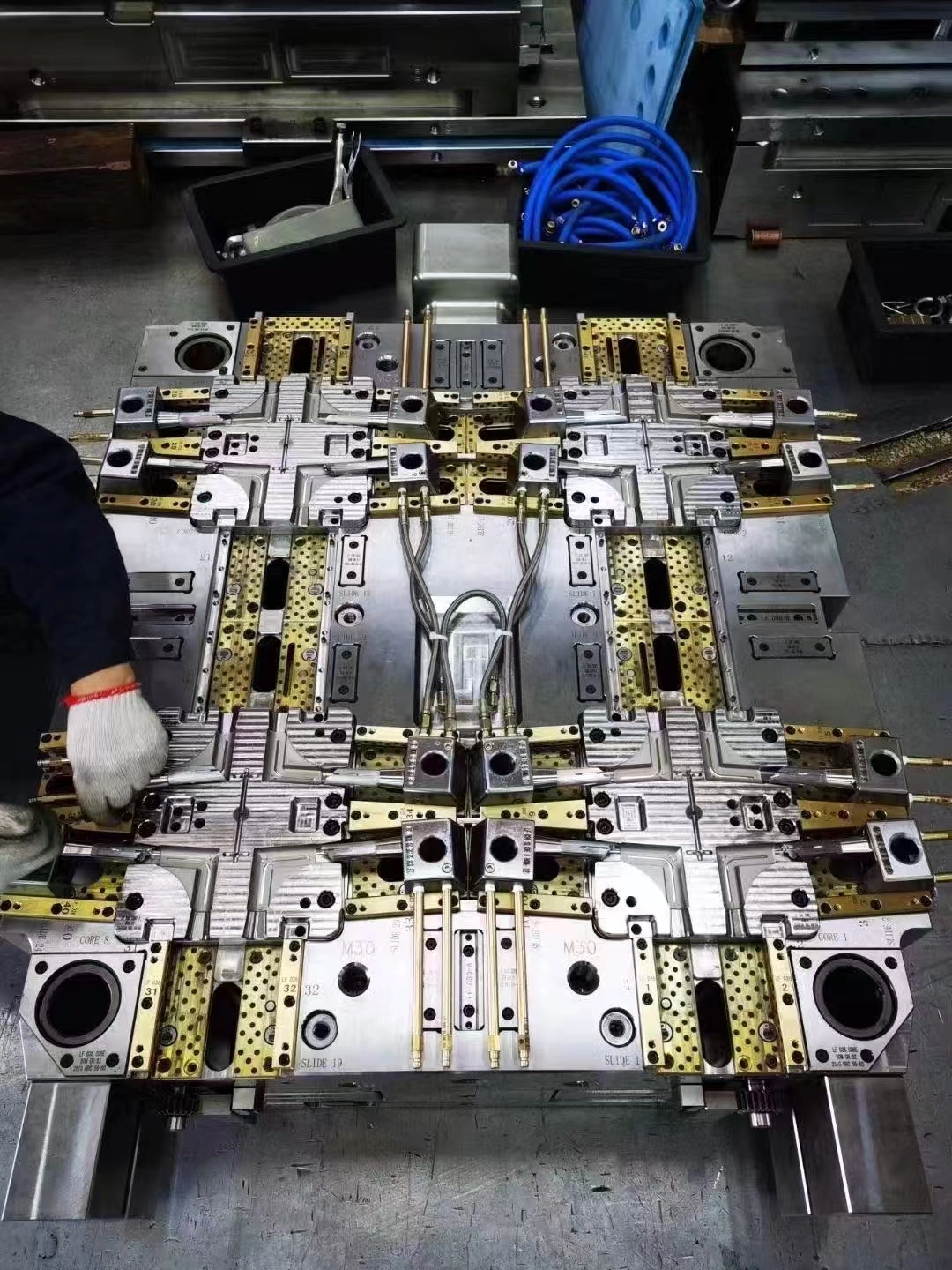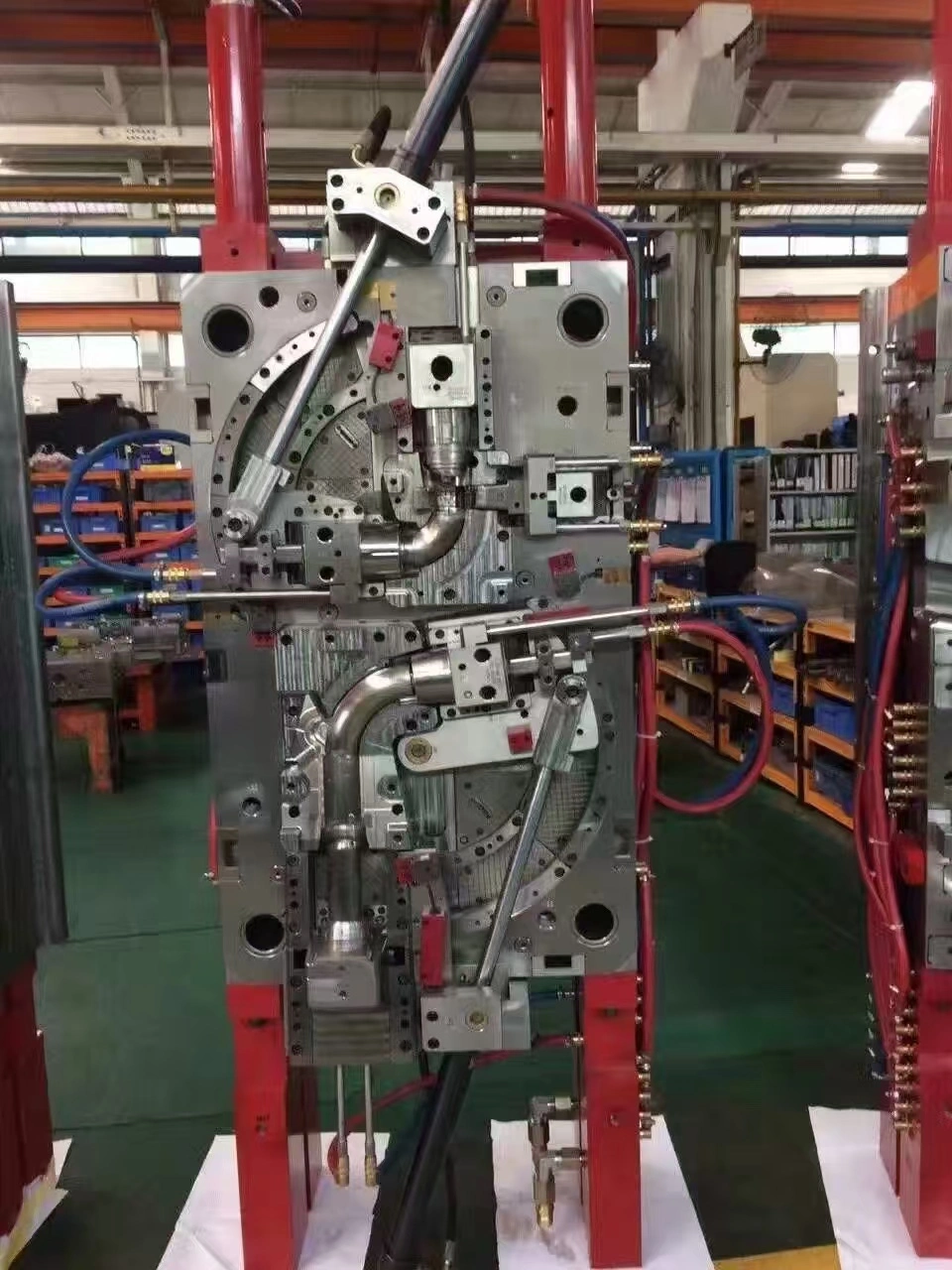What quality standards govern plastic components manufacturing?
In the ever-evolving world of manufacturing, plastic components play a crucial role in countless industries, from automotive to consumer electronics. As the demand for high-quality, precision-engineered plastic parts continues to grow, it's essential to understand the quality standards that govern their production. These standards ensure that plastic components meet specific requirements for performance, safety, and reliability. From international ISO standards to industry-specific regulations, manufacturers must adhere to a complex web of guidelines to produce plastic parts that meet or exceed customer expectations. In this blog post, we'll explore the key quality standards that shape the plastic components manufacturing landscape, delving into the importance of compliance, the benefits of adhering to these standards, and how they contribute to the overall quality and success of plastic products in various applications.

ISO Standards for Plastic Components Manufacturing
ISO 9001 Quality Management System
The ISO 9001 Quality Management System is a cornerstone of quality assurance in plastic components manufacturing. This internationally recognized standard provides a framework for organizations to implement and maintain effective quality management processes. By adhering to ISO 9001, plastic component manufacturers can ensure consistent product quality, improve customer satisfaction, and streamline their operations. The standard emphasizes a process-based approach, encouraging continuous improvement and risk-based thinking. For plastic components manufacturers, implementing ISO 9001 can lead to reduced defects, improved efficiency, and enhanced customer confidence in their products.
ISO 13485 for Medical Plastic Components
When it comes to plastic components used in medical devices, the ISO 13485 standard takes center stage. This standard is specifically designed for organizations involved in the design, production, installation, and servicing of medical devices and related services. It builds upon the ISO 9001 framework but includes additional requirements tailored to the medical device industry. Plastic components manufacturers producing parts for medical applications must comply with ISO 13485 to ensure their products meet the stringent quality and safety requirements of the healthcare sector. This standard covers aspects such as risk management, sterile manufacturing processes, and traceability throughout the product lifecycle.
ISO 14001 Environmental Management System
As sustainability becomes increasingly important in manufacturing, the ISO 14001 Environmental Management System standard has gained prominence in the plastic components industry. This standard provides a framework for organizations to develop and implement effective environmental management practices. For plastic components manufacturers, adhering to ISO 14001 demonstrates a commitment to reducing environmental impact, improving resource efficiency, and complying with relevant environmental regulations. Implementing this standard can lead to benefits such as reduced waste, improved energy efficiency, and enhanced brand reputation for environmentally conscious practices in plastic components production.
Industry-Specific Standards for Plastic Components
ASTM Standards for Plastic Materials and Testing
The American Society for Testing and Materials (ASTM) has developed numerous standards specifically for plastic materials and components. These standards cover a wide range of aspects, including material properties, testing methods, and performance requirements. For plastic components manufacturers, adherence to ASTM standards ensures that their products meet industry-accepted criteria for quality and reliability. Some key ASTM standards for plastic components include ASTM D638 for tensile properties, ASTM D790 for flexural properties, and ASTM D256 for impact resistance. By following these standards, manufacturers can provide customers with consistent and reliable plastic components that meet specific performance requirements across various applications.
Automotive Industry Standards (IATF 16949)
The automotive industry has its own set of stringent quality standards, with IATF 16949 being the primary quality management system standard for automotive suppliers. This standard, developed by the International Automotive Task Force (IATF), builds upon ISO 9001 and includes additional requirements specific to the automotive sector. For plastic components manufacturers serving the automotive industry, compliance with IATF 16949 is often a prerequisite for doing business with major automakers. The standard emphasizes defect prevention, reduction of variation and waste, and continuous improvement throughout the supply chain. Implementing IATF 16949 can help plastic components manufacturers improve their processes, reduce defects, and meet the demanding quality requirements of the automotive industry.
Food Contact Materials Regulations (EU 10/2011)
For plastic components used in food packaging or food contact applications, compliance with food safety regulations is paramount. In the European Union, the EU 10/2011 regulation sets specific requirements for plastic materials and articles intended to come into contact with food. This regulation covers aspects such as the composition of plastic materials, migration limits for chemical substances, and testing requirements. Plastic components manufacturers producing parts for food contact applications must ensure their products comply with EU 10/2011 and similar regulations in other regions. Adherence to these standards helps ensure the safety of food packaging and prevents potential contamination of food products by chemicals from plastic components.
Quality Control Techniques in Plastic Components Manufacturing
Statistical Process Control (SPC)
Statistical Process Control (SPC) is a powerful quality control technique widely used in plastic components manufacturing. This method involves the use of statistical tools to monitor and control production processes, ensuring that plastic components are produced within specified tolerances. By implementing SPC, manufacturers can detect process variations early, reduce defects, and maintain consistent product quality. Key SPC tools used in plastic components production include control charts, histograms, and capability analysis. These techniques help manufacturers identify trends, spot potential issues before they become critical, and continuously improve their production processes. Effective use of SPC can lead to reduced scrap rates, improved productivity, and enhanced customer satisfaction in plastic components manufacturing.
Failure Mode and Effects Analysis (FMEA)
Failure Mode and Effects Analysis (FMEA) is a proactive quality control technique that helps plastic components manufacturers identify and mitigate potential failure modes before they occur. This systematic approach involves analyzing each component, process step, or system to determine potential failure modes, their causes, and their effects on the overall product or process. For plastic components, FMEA can be applied to both product design (Design FMEA) and manufacturing processes (Process FMEA). By conducting FMEA, manufacturers can prioritize potential risks, implement preventive measures, and improve the reliability and quality of their plastic components. This technique is particularly valuable in industries with high safety and reliability requirements, such as automotive and aerospace.
Six Sigma Methodology
Six Sigma is a data-driven quality improvement methodology that aims to reduce defects and variability in manufacturing processes. In plastic components manufacturing, Six Sigma can be applied to achieve near-perfect quality levels and improve overall operational efficiency. The methodology uses a structured approach known as DMAIC (Define, Measure, Analyze, Improve, Control) to identify and eliminate sources of variation in production processes. For plastic components manufacturers, implementing Six Sigma can lead to benefits such as reduced cycle times, improved product consistency, and decreased production costs. By focusing on data-driven decision-making and continuous improvement, Six Sigma helps manufacturers achieve and maintain high levels of quality in their plastic components production.
Conclusion
Quality standards play a crucial role in governing the manufacturing of plastic components across various industries. From ISO standards to industry-specific regulations and quality control techniques, these guidelines ensure that plastic parts meet stringent requirements for performance, safety, and reliability. By adhering to these standards, manufacturers can improve product quality, enhance customer satisfaction, and maintain a competitive edge in the market. As the demand for high-quality plastic components continues to grow, staying up-to-date with evolving quality standards and implementing effective quality management systems will be essential for success in the plastic components manufacturing industry.
Alwin Asia Limited, registered in Hong Kong, works closely with Dongguan Yongsheng Hardware Plastic Product Co., Ltd., a council member of the Dongguan City Hardware Machinery Mould Industry Association. With over 20 years of experience and ISO9001:2015 certification, Yongsheng specializes in plastic molds, die casting molds, and plastic products. Located in Chang'an Town, Dongguan City, known as the Town of Molds, our factory boasts more than 300 employees and 6000 square meters of building area. We offer one-stop OEM services, including design, development, mold fabrication, production, and secondary processing. Conveniently situated near Shenzhen Airport, we provide easy access for visitors and prioritize high-quality, cost-effective solutions with timely delivery. For inquiries, please contact us at sales-c@alwinasia.com.
FAQ
Q: What is the importance of ISO 9001 in plastic components manufacturing?
A: ISO 9001 provides a framework for effective quality management, ensuring consistent product quality, improved customer satisfaction, and streamlined operations.
Q: How does IATF 16949 differ from ISO 9001 for automotive plastic components?
A: IATF 16949 builds upon ISO 9001 and includes additional requirements specific to the automotive industry, emphasizing defect prevention and continuous improvement.
Q: What are the key ASTM standards for plastic components?
A: Important ASTM standards include D638 for tensile properties, D790 for flexural properties, and D256 for impact resistance.
Q: How does Statistical Process Control (SPC) benefit plastic components manufacturing?
A: SPC helps monitor and control production processes, reducing defects, maintaining consistent quality, and improving overall productivity.
Q: What is the significance of the EU 10/2011 regulation for plastic components?
A: EU 10/2011 sets requirements for plastic materials used in food contact applications, ensuring safety and preventing potential contamination.
References
1. International Organization for Standardization. (2015). ISO 9001:2015 Quality management systems - Requirements.
2. International Organization for Standardization. (2016). ISO 13485:2016 Medical devices - Quality management systems - Requirements for regulatory purposes.
3. International Automotive Task Force. (2016). IATF 16949:2016 Quality management system requirements for automotive production and relevant service parts organizations.
4. American Society for Testing and Materials. (2021). ASTM D638-14 Standard Test Method for Tensile Properties of Plastics.
5. European Commission. (2011). Commission Regulation (EU) No 10/2011 on plastic materials and articles intended to come into contact with food.
6. Pyzdek, T., & Keller, P. A. (2018). The Six Sigma handbook: A complete guide for green belts, black belts, and managers at all levels. McGraw-Hill Education.

We can provide a one-stop service, including design and development, mold fabrication, production, product processing, etc.

Professional injection mold, die casting mold, plastic products OEM manufacturer


